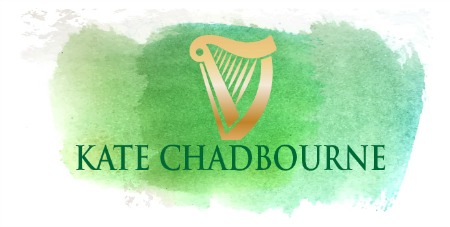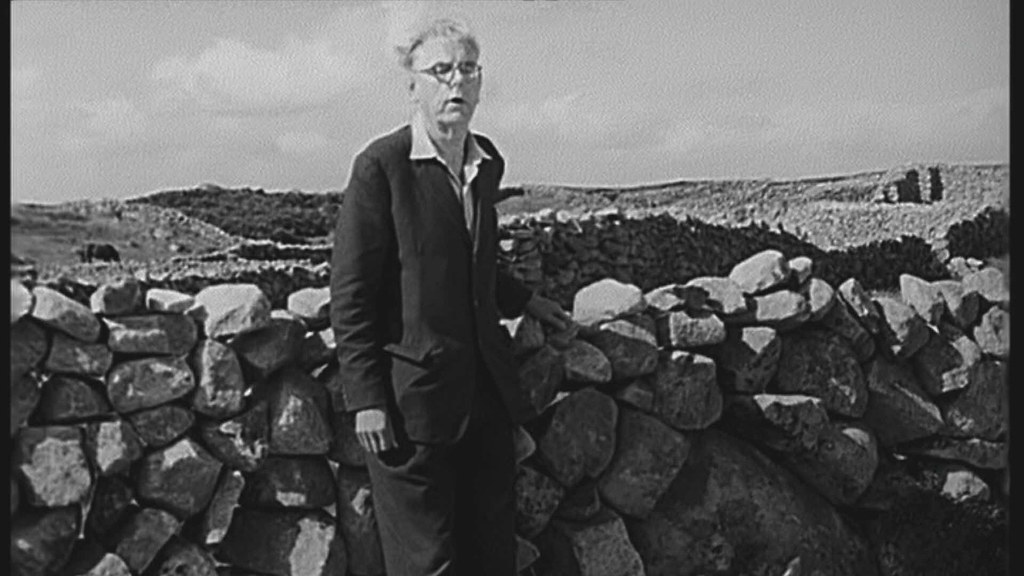Teaching is really the best game in town if you ask me because it stimulates learning – by which I mean, my own!
I faced an interesting challenge this morning and meeting it was fun and fascinating.
One of my students asked me to translate a tale collected over Christmas 1930 by the Irish writer Mairtin O Cadhain from his own father (the picture shows Mairtin the writer). The tales are set down in the old script, pre-spelling reform, and contain interesting and challenging dialectical features.
For me, though, it’s a trove of great fairylore, supernatural belief, and mythology that I can hardly wait to plunder. I didn’t know about it until my student asked for this favor, and I’m so grateful for the excuse to dive in and learn from it.
I thought you might enjoy reading the tale, typical of a type called “Woman Abducted by Fairies.” I’ve made a few notes about interesting language at the bottom. And if you’re a little taken aback by the violence of the language used in the rescue, you should be. There’s much food for thought here!
Máirtín Ó Cadhain, “Cnuasach Ó Chois-Fharraige”
(Béaloideas , Dec., 1935, Iml. 5, Uimh 2 (Dec., 1935), pp. 219-272) #18
There was a man whose wife was lost in childbirth. He took on a nurse to look after the child. The child flourished then.
“By dad,” he said, “You’re doing beautifully with the child.”
“Oh,” she said, “His own mother is nursing him every night. When you go to bed and I pick up the child, she comes in and takes the child and begins to nurse him. Then she lays him down again.”
“I’ll go in your place tonight,” he said to the nurse, “and you go into some other part of the house.”
He wasn’t long asleep when she came in, and she took him up, saying, “I nurture and tend to my own child.”
He leapt up and grabbed her around the waist.
“Oh, that will do you no good,” she said, “but if there’s any goodness in you as a man, I’ll be yours yet.”
She told him to be on a certain path tomorrow night, and to bring with him the shirt she’d been wearing when she died, and to bring his brother along with him, and two dogs they had.
“A fleet will come through that gap,” she said, “and a pair* on every horse – a man and woman. Let them all go by,” she said, “until the second to last. Leap up and strike me between the eyes with the shirt. Throw me down to the ground, and you’ll have to be a good boy, you and your brother.”
He did so. She was cast down to him. The trouncing** and the beating began and the two brothers did their very best to neutralize** everything they encountered. He brought the woman home and she was as well as she ever was. She lived another forty years. She lived in County Clare.
*Cúlóg = one who rides behind another on horse
**Marbhadh (here marbú) = act of killing, murdering, slaughtering (as of a beast), catching (as a fish), severely trouncing, scolding, or worrying, deadening, neutralizing (**same word twice)




Thank you, Kate 🥰 I giggled and smiled while watching your tool-sharing video! What a joy to hear and see you, here, on this platform, in your sweet back garden, birds in happy chorus all the while. Thank you again and Happy playing!
Thank you, dear friend! <3